









Welcome to “Up Close & Personal.” For every interview I will be introducing a literary personality discussing her views and insights, as well as upcoming literary events around the world.
Today’s interview is with Melissa De La Cruz, she's the author of Au Pairs which was bought by the WB Network for television. Her book How to Become Famous in Two Weeks or Less was sold to Universal Studio as a reality program and to Walt Disney Studio as a motion picture.
She's a former fashion editor and has appeared as an expert on style, trends and fame for CNN and the E! Ms. De La Cruz is a graduate of Columbia Universtiy. She grew up in Manila, Philippines.
EI: Ms. De La Cruz, would you share some early insight into who you were as a teenager? What were you like? Please tell us more about Melissa De La Cruz -- the woman behind the journalist & the high-fashion author?
MDLC: Ever since I was a teen, I have always looooved to read as well as shop. My two favorite places were the mall and the library. I read a lot of Stephen King, Anne Rice and LOTR (including the Silmarillion), and my favorite labels were Benetton and Esprit. I went to an all-girls high school so on the rare, eagerly-anticipated free-dress days I planned my outfit VERY carefully. I liked to adopt different fashion personas--sometimes I was a bit goth--one of my favorite outfits was an oversize Cure concert t-shirt, slouchy gray pants from the Gap and black Roman sandals from Payless and a black blazer from the Salvation Army that I bought for three dollars. And sometimes I was totally Cher from Clueless--very matchy-matchy and cutesy (hey it was the 80s). My other favorite outfit was a houndstooth blazer and matching miniskirt, with tights and black knee-high boots. And yes, sadly I had really big hair. I used to roll my bangs upwards from my face in a style that resembles a croissant.
As far as what I'm really like, I think most people would say I'm a lot like my blog. I'm obsessed about shopping, and I work a lot, and I read everything I can get my hands on, and I don't see my friends as often as I'd like, and sometimes I get to go to some pretty great events, like fashion week or a golden globes after-party, or a Hollywood gifting suite, so I need to leave my house and get my hair done.
EI: Ms. De La Cruz, Please tell our readers about your experience as one of the founding editors of 'Hint Magazine.' What was the career path that leads you to that level? And do you express your inner self in your writing or do the personas you create exist only in your imagination?
MDLC: I was lucky enough to meet three very special guys who became my very good friends, and we all founded Hint together, I think what led me to Hint was luck--I was a fashion journalist in New York, so I had a bunch of clips already and a solid reputation as a writer. I was looking around for something fun to do, and it sort of fell in my lap, and the four of us really got along. For a few years, we were inseparable, and raised a lot of havoc in New York. It was like being in a rockband. The fabulous Lee Carter, whom I met at a fashion show, was the one who brought us all together. I'm very proud of where we all ended up. Horacio Silva is now an editor at the New York Times Style magazine, Ben Widdicombe is a big-time gossip columnist for the Daily News, and Lee still runs Hint, which has won countless of awards, including a Webby. We joke that they should do a "Behind the Fashion" story on us, since we kind of "broke up" right when we started winning all the awards. I think of my time at Hint very fondly.
Hmm. Do I express my inner-self in my writing? I guess so. I'm pretty comfortable in my own skin though. It took a long time to feel that way, but now that I do feel that way, I look back at my insecure, awkward old self and I wish I hadn't been so hard on myself back then. I think my outer-self and my inner-self are pretty alike. I've been the bitchy mean girl, but I've been the outcast girl, I know what it's like to have tons of friends and fun, and I also know what it's like to be the one standing outside the circle. A lot of people ask if I am "Cat" from "Cat's Meow". And while Cat certainly has my sense of humor, she's not me. My characters all have parts of me, but they are their own creations.
EI: What about your experience as a fashion editor for Marie Claire, Harper Bazaar, The New York Times, Seventeen, Glamour, Cosmo Girl to name a few? How did you manage to be in the limelight?
MDLC: I was a freelance writer for all those publications, not a fashion editor. It was great to write for all those magazines--it's a tough industry to crack, and I feel honored that I have contributed to all of these publications that I read avidly. I think it just takes persistence, determination and luck. I never say 'no' to anything. I have written for all of those above but I have also written for a ton of magazines that have died (Lifetime, Rosie, Men's Style to name a few) as well as tons of magazines and publications no one has heard of. I think you have to start writing for a lot of places before the big names take notice.
EI: Do you think that your experience as an editor and a journalist helped you succeed as a writer? Do you still write for periodicals? What are the do's and don'ts of writing for periodicals, and how does the discipline differ from writing your famous novels?
MDLC: Writing for magazines and newspapers is great training. You learn to work under deadline and with an editor. I don't write for magazines as much as I used to--I don't have time with all the books under contract. Dos and don'ts? Every magazine has a certain style that you have to fit. I would say do study the magazine and know what kind of stories they like to run before you pitch them. And don't miss your deadline. Writing short pieces is a lot easier because it doesn't take as much time. Novels are harder because you have to keep at it for an extended period of time, and the payoff isn't as quick.
EI: I understand that you where twelve years old when you immigrated to this country with your family? You were practically a teenager when you left the Philippines, perhaps a six grader? Did you attend one of the exclusive private schools in the Philippines, such as Saint Paul in Ermita, Saint Theresa's or the Assumption Catholic School in Dasmarinas? What was life like growing up in the Pacific Rim?
MDLC: I had actually finished my first year of high school when we moved. I guess I'm young for my grade? But we don't have eighth grade in Manila, so really I had finished eighth grade when we moved. You know, now that I think about it, I was thirteen when we moved, not twelve. Oops. My bad. I turned fourteen here during my freshman year of high school in America. And yes, I attended Assumption Convent. Life in Manila seems like a dream now. I remember being very sheltered. And having lots of gates and security everywhere. Bodyguards at the mall. Lots of maids and nannies. And my parents going off to tons of fabulous parties--and throwing tons of fabulous parties in our fabulous house. My mom would have her facialist, her seamstress, and her hairstylist visit the house every weekend. It was decadent and dreamy. Lots of hanging out at the country club and three-month vacations to Europe.
EI: In one of your interviews you noted that you grew up in Manila as a 'rich kid', before moving to the States. Did you live in one of the elite neighborhoods of Forbes Park, Dasmarinas Village, or Greenhills in those days? And you also mentioned that your family maintained a staff of nine servants in Manila, plus a chauffeur. What was the transition to life in America like for you?
MDLC: We lived in Valle Verde II in Greenhills. Oh dear. Transition to life in America was very hard. It's still hard! LOL. My husband (who is American and from the Midwest) says that I don't know how to do anything. I expect everything to be cleaned up after me, like a little princess. I guess half of me grew up very entitled and the other half is kind of this flinty, no-nonsense immigrant. I understand the dynamic of rich communities, the insulation, the snobbery, but I also understand what hardscrabble struggle is like.
EI: How does the Filipino American community respond to your books? Do you make an effort to connect with them? How accepted are you?
MDLC: I think they like my books. I get a ton of email from Filipino teens. And I've been featured in a lot of Filipino publications. My publisher (Simon and Schuster) has said they would like to send me to Manila some time, as there is a lot of interest there if I visit. I hope to visit sometime soon!
EI: What would you like to say to writers who are reading this interview and wondering if they can keep creating, if they are good enough, if their voices and visions matter enough to share? What surprised you most about the publishing process from the writer's perspective?
MDLC: My main advice to all writers is NEVER GIVE UP. You just need someone to say yes, to take a chance on you. Which also means SEND YOUR STUFF OUT. You have to deal with rejection, get your stuff out to the world--don't NOT send it because you're scared they're going to say no. They're going to say no. Definitely. But one day, someone will say YES. And the other thing is to hone your craft--keep reading, keep writing.
What surprised me about the publishing process is that it is an industry. It's a business. Your book has to sell, it has to appeal to an audience of readers, or there is no reason for it to be published. I guess I was very naive, like many writers, when I first started. I thought I would publish a book and it would change my life. But it's about having career longevity, and sales. I feel very lucky that I have found an audience for my writing-the Ashleys, which is coming out this December, is my 10th novel and my 4th series. I love my readers--they are so enthusiastic and appreciative. And so cute!
EI: Many writers describe themselves as "character" or "plot" writers. Which one are you? And what do you find to be the hardest part of writing?
MDLC: I think I started out a character writer. I think I have to say this because Cat's Meow had no plot when I turned in the first draft! But I've slowly become a plot writer, I think. I love a hard-to-put-down book, one you can't stop reading. The hardest part of writing, for me, is trying to figure out what the unexpected is, and trying to have it happen naturally in the story and not have it 'forced'. I also really hate to have a predictable plot--when books are predictable, they become really boring. The most predictable outcome is the one that seems easiest to write, so it's a struggle to NOT go there, and to try to see if the story can go somewhere else. And usually, that happens only through lots of hard work and rewriting and facing off at the computer. If you write the first thing that comes to mind, it's usually the first thing that the reader will think of also.
EI: Would you describe yourself as a confident writer, always ready to face the next new challenge? Either in front of a TV camera, famous celebrity or an editor? Do you have to psyche yourself up to try different venues?
MDLC: I think all writers have to be confident, otherwise, you'd never get anything done, and I certainly have always had confidence in my work. I know I'm a good writer, even when I got rejected from various MFA programs. :-) Writing has always come easily to me. I've always been drawn to books, and love to read, and I'm lucky enough that I'm able to write as well. Being in front of the TV camera does not come as naturally, but it can be learned. I deal with having to be on TV by never watching myself on television. I just cringe! But here's how to pull it off--wear a bright, solid color, get your hair and makeup done, and never-stop-talking. Dead air kills.
EI: You are well known in the writing community as the beautiful, talented, former fashion editor, wears high end fashion clothing, a celebrity journalist, and now a bestselling author. How do you manage being the center of public attention and the limelight? Do you ever feel pressure or insecure, or are you able to separate all that from your own creative process?
MDLC: Why thank you! That is very nice of you to say. *Blush* Part of me certainly loves the spotlight. I've always loved fashionable parties, VIP rooms, and the torrent of camera flashbulbs. We are in the middle of book tour for my new anthology "Girls who like boys who like boys" and we had more than a dozen events, and two book parties and it was so much fun just to plan what I was going to wear! I think it's so nice to get attention for a book, readings are very invigorating. It's all a hoot. I also figured out that if I angst about the appearances, or worry too much about everything, I don't get to have any fun. My personality tends towards the goofy, and I love to entertain. I've always loved telling stories, whether on paper or to a large group of people. So it's just a natural extension of my private life. My father was a huge raconteur, so I think I inherited some of that.
EI: When you look back on your enormously successful career as a 'fashion editor' is there anything you would've done differently? Ever dream of having your own "designed fashion line?" If so, what and why? If not, how do you manage to move forward without regrets?
MDLC: At one point when I was much younger I did think it would be fun to be a fashion designer, but I don't think I have the patience or the imagination to think up entire collections every season. I realize I'd much prefer to buy clothes rather than to make them. And I love to describe them!
EI: Your book 'Au Pairs' was a phenomenal bestseller --- what do you think most appeals to people about your work? And how difficult was it to muster up the courage to write another, risking a jinx'?
MDLC: I think my books are very entertaining, fast reads, and I work very hard to make the characters appealing and the stories fun. Skinny-Dipping, which was Book Two in the Au Pairs series, was hard to write because I was worried that it wouldn't live up to the first one. But at some point, you just forge ahead, and get it done, and it's just up to the public to decide. I'm a risk-taker and I'd rather try and fail at something rather than never try anything at all. (At least when it comes to books and my career. I'm a big fraidy-cat when heights are concerned.) I'm not scared of failure, I think it's the only way you'll ever have success in life.
EI: Each of your novels seems to take a moral question and dramatize it without trivializing it. Are you consciously exploring issues of "teen sex's sells" versus " GOODY TWO-SHOES", or personal evil, etc.? How does this work for you?
MDLC: This is unconscious, although I think when you write a book, you are writing from a certain point of view, and perhaps the morality comes through even though I think I'm just writing something very entertaining. I just never would like to be preachy. There is a lot of me and my personality in the books, and I do believe in certain things, like that you can like fashion AND be smart at the same time, and that working hard is the best way to get ahead, but it's also really fun to live the high-life at nightclubs and VIP rooms. One of my favorite books is SNOBS by Julian Fellowes, where he writes about people who are drawn to worldly things and how does one hold on to "True Values" when you're angling to get into the private Royal box at Ascot, for instance. I think the thing to do is not to take everything so seriously and have a good sense of humor about yourself.
EI: You've written many novels in which your main characters 'Johnny Silver, Mama Fay, Taj. Sutton, Eliza, Mara, Jacqui, Ryan Perry, Jeremy, Schuyler Van Alen, Oliver, Dylan to name a few --- , and of course Cat McAllister--- in parallel, to solve their conflicts. What challenges do returning characters pose? How do you keep the complicated, and life --- like, relationships clear in your mind -- and have you found yourself to be surprised with the strains, turns, changes among these characters? Do you ever tire of them? What happens then?
MDLC: I think the challenge in writing a series is keeping the characters true to themselves but also letting them grow and letting the story develop. I'm constantly surprised by my characters--like when Schuyler asks Oliver to be her human familiar in Masquerade--you'd think she'd know better! (And you'll have to read the book to find out what happens! I don't want to give away any spoilers.)
As far as the characters' relationships and lives, those are all clear in my head, what's hard with writing a series is sometimes you forget if the character has blue eyes or green, or what color hair. Did I say Schuyler had blue-black hair? Or was it more a dark brown? That sort of thing.
EI: What made you to decide to start writing books about vampires? What do you hope readers take with them after finishing "Masquerade...?"
MDLC: I've always been interested in vampires. My favorite books growing up were Anne Rice's Vampire saga and Stephen King's Salem's Lot. I loved Anne Rice because Lestat was such a wonderful character--so flawed, so beautiful, so evil. And Salem's Lot just scared me to death. Blue Bloods just came naturally out of a desire to write something in that vein, but also to figure out a new mythology for the vampires. Masquerade is the second book in the series, which I think is deeper and a richer read, and I hope readers like it enough to read the next one--Revelations!
EI: Your readers and other writers often like to get behind the author's writing routine. Would you like to share your fans your typical writing day schedule now that you have your beautiful daughter?
MDLC: It hasn't been typical at all! Which is really hard. I used to be able to write until three in the morning under deadline. But now that I am breast-feeding and she is still not sleeping through the night, it's been impossible. I'm just so fatigued! I used to go to this writer's office in Brentwood that I loved, and I think it's time to go back since I can't get any work done at home. Writing and parenting is a 24-hour job. I just feel like I'm always working. I guess the typical day now is I work from 9-5 when the nanny is here, then have playtime and dinner and try to see my husband and putting-her-to-sleep time from
5-8. Then around 9pm I try to work again until midnight. Luckily my husband and I both work from home, so we do see each other even when both of us have crazy deadlines.
EI: Now... let's shift gears here for a second. Can you share with us some of the challenges you faced to publish "Girls Who Likes Boys Who Likes Boys?"What inspired you to put together this anthology?
MDLC: Girls who like boys who like boys: true tales of love, lust and friendship between gay men and straight women is an anthology I edited with my dear friend Tom Dolby. It was inspired by the close friendship we shared, and I thought there should be a book that celebrated the alliance between gay men and straight women. We were looking for a lot of variety--stories about best friends, but also stories about families--we have an essay by Philip Himberg where he writes about how his ex-girlfriend, Cathy, gave birth to his daughter and gave her to him and his partner to raise. Also an essay by Sex and the City's Cindy Chupack, where she writes about her gay ex-husband and how they were able to wish each other well when the marriage ended. We really didn't face any challenges at all. My agent sold the book in a week to Dutton, and then we put together our "dream lists" of writers we'd love to work with and most of them said yes. Simon Doonan, Gigi Grazer, Andrew Solomon, Ayelet Waldman, Mike Albo, David Levithan, Anna David, Alexandra Jacobs, Karen Robinovitz, Elizabeth Spiers---and tons more are in the book and share their wonderful stories.
EI: Please tell us about Schuyler Van Alen, Oliver and Dylan? What was your biggest challenge in developing these characters? How did you develop them? Did you work them out in advance, or did they evolve as you wrote the story?
MDLC: A long time ago, there was a club in New York called "The Bank" and it was a bit of a dorky goth club, not at all like the swishy velvet-rope nightclubs with thousand-dollar bottle service that are all over New York now. My best friend Morgan and I looooved the Bank, because they played all our favorite bands: Sioxsie Sioux, The Cure, Bauhaus, all the songs we loved as teens. When I was writing Blue Bloods, I thought of the Bank, (because it was a nightclub in an old crumbling bank) and Schuyler came into my head as a teen who was worried about how to get into the Bank. I was also very inspired by how Mary Kate Olsen dressed--all those layers and hobo chic and thought Schuyler would dress this way. Oliver is based a bit on Morgan, his sense of humor and his sophistication, and Dylan is based on another friend of mine from college who was broody and gorgeous and a bit of a 'bad boy.' They evolved into their own beings as the story progressed. It was fun to find out Oliver was Schuyler's conduit, for instance, and that Dylan was also a vampire (oops--spoilers, uch!).
EI: Please tell us about ' The Au Pairs: Crazy Hot' the 4th book in the series. Would you care to share a little a bit about it?
MDLC: Crazy Hot is the fourth Au Pairs book, with all new adventures for our favorite partying babysitters. Mara has a cute new 'intellectual' boyfriend, the anti-Ryan, who seems perfect for her--but is he really? Jacqui is discovered as a supermodel by two hot saucy Aussie photographers, and falls for one of them, and Jeremy proposes to Eliza with what she thinks of as a "Holly-rock"--an engagement ring just for show, just like the one Paris Hilton and any number of starlets wear in Us Weekly and say they're "engaged." But Jeremy's really serious--so is it icebergs ahead? It's another fun romp in the Hamptons!
EI: If you were allowed total control of a Hollywood adaptation of "Masquerade: A Blue Blood Novel" which actors would you cast? And who would you want to direct?
MDLC: I try not to say because I like my readers to imagine the characters instead of the actors when they read the book. I think that's the fun thing about reading--you get to imagine on your own what they look like. I love the LOTR movies but now when I read the book, I picture Orlando Bloom instead of the Legolas I had seen in my minds' eye.
EI: Would you give us a hint about your upcoming book "666?" What can you tell us about it?
MDLC: 666: The Number of the Beast is a horror anthology from Scholastic. I have a short story in it called "Shelter Island" about one of our favorite Blue Blood vampires. Readers will find out what happened to Dylan! And it's from the point of view of a human girl, which I thought was fun and interesting to write.
The next book in the Blue Bloods series is REVELATIONS, which comes out next fall. And the second book in the Angels on Sunset Boulevard series is THE STRIP.
My next novel that is coming out is THE ASHLEYS in December, which kicks off a new series about the most popular girls in seventh-grade. Truth or Dare. Sleepover Parties. Rank Calls. Gossip. Shopping. Cute Boys. Don't miss it!
EI: Ms. De La Cruz, thank you for contributing to my blog. It has been a pleasure for me to get to know you, and your work a little better. Would you like to end your interview with a writing tip or advice for young aspiring writers? Maraming Salamat Po. Thanks once again and good luck with your next book "THE ASHLEYS". We are all cheering for your success!
MDLC: Thanks very much! This was a lot of fun and thanks for thinking of me! I would say to all aspiring writers, not to give up! Never take no for an answer, and keep writing...the more you do it the better you get at it!
To learn more about Melissa De La Cruz, please visit her at:
http://www.melissa-delacruz.com/
http://www.myspace.com/melissadelacruz
Photo of Ms. Melissa De La Cruz (BW)By Ruffy Landayan, Los Angeles, CA.







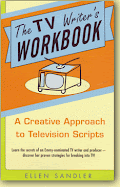



.png)



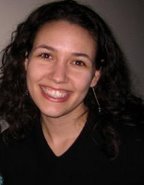
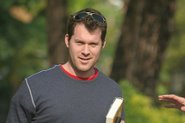

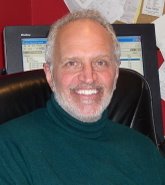
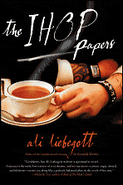
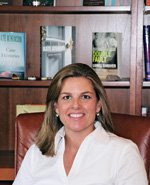
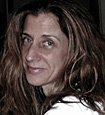
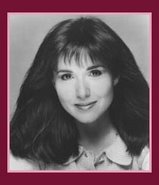
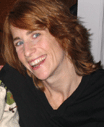





No comments:
Post a Comment